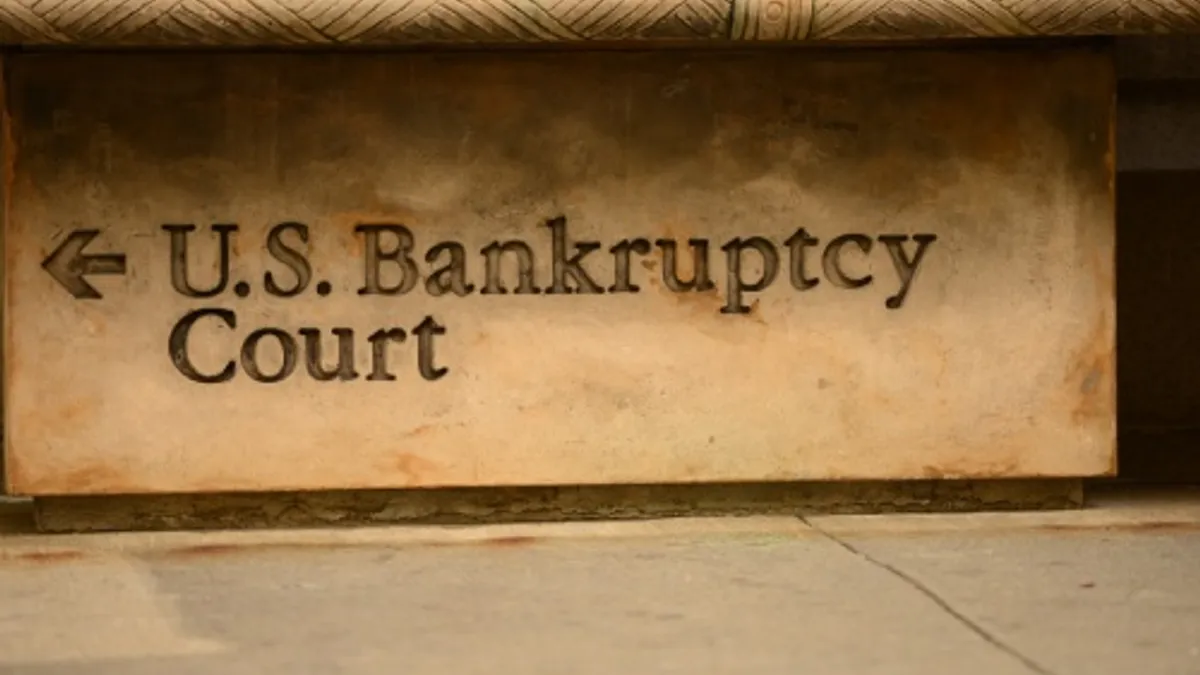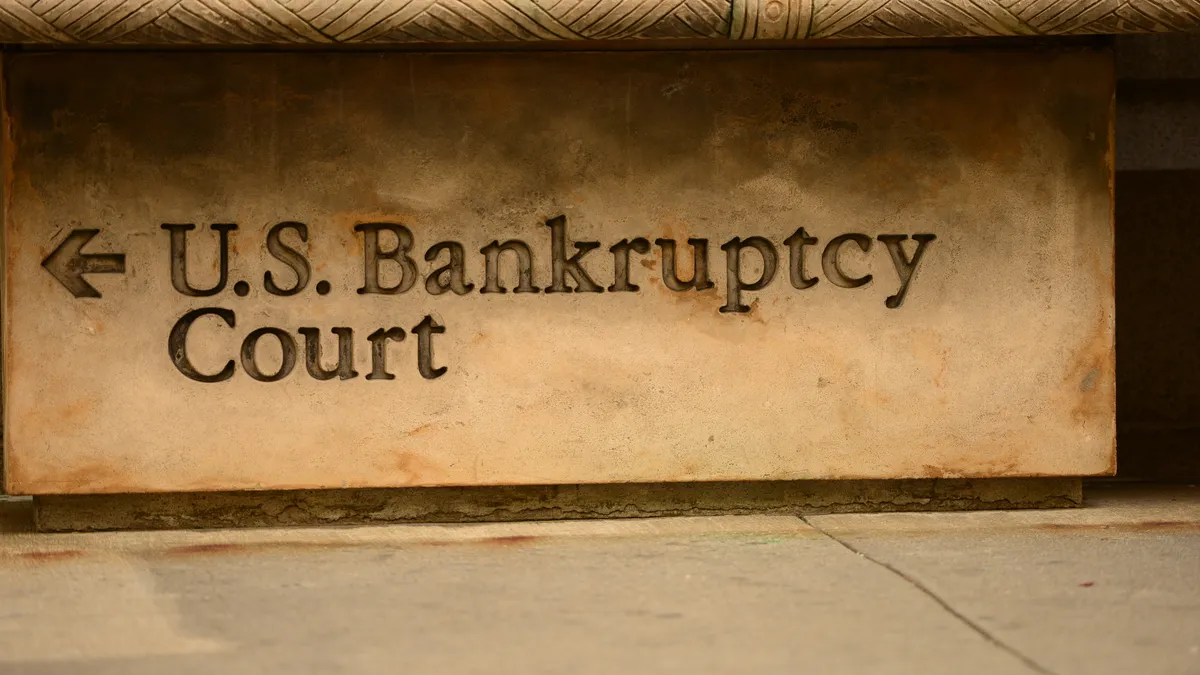When Coursera went public earlier this year, it was riding a wave of enthusiasm for online education brought on by the coronavirus pandemic. The company — which offers more than 4,600 standalone online courses, two dozen degree programs and other credentials — told potential investors that users were flocking to its platform during the health crisis.
One segment of the business was doing particularly well. Since 2015, the company has partnered with colleges to help them launch and run online degree programs hosted on the Coursera platform, including by recruiting students. In exchange, the company receives a portion of their tuition revenue.
The number of students enrolled in one of Coursera's degree programs swelled from 6,200 at the end of 2019 to nearly 12,000 a year later. But Coursera issued a warning to investors when filing for its initial public offering: That part of its business is on unstable legal footing.
U.S. law prohibits colleges that receive federal financial aid from giving commissions, bonuses or other types of incentive-based compensation to companies or individuals that recruit and enroll students into their programs.
Some experts contend tuition-share agreements that include enrollment services may not be in line with this law because they give companies an incentive to recruit as many students as they can without paying mind to quality. However, federal guidance issued in 2011 said schools could enter into tuition-share agreements with companies that offer help with enrollment, so long as it is part of a larger package of services.
This exception helped make it possible for companies that work with colleges to create and deliver online programs to prosper, including Coursera. In SEC documents, the company said it "relies heavily" on the exception to enter tuition-share agreements with its partner colleges.
But the company also said the guidance, which hasn't been codified in regulations or federal law, could easily be rewritten without notice or overturned through a lawsuit. If that happened, Coursera — and companies like it — would have to change their business models or renegotiate their contracts.
At least two high-profile lawmakers and a handful of policy advocates are questioning whether the guidance complies with federal law — putting OPM companies on high alert.
"They're enormously worried," said Trace Urdan, managing director at Tyton Partners, an investment banking and consulting firm that works with the higher ed sector, including OPMs.
Origin of the bundled services exception
Coursera isn't the first company to warn investors about the potential for the bundled services exception to vanish. When 2U, another OPM company, went public in 2014, it used nearly the same language as Coursera in U.S. Securities and Exchange Commission filings, noting that much of its business relied on tuition-share agreements and that it may have to change its business model if the guidance were rescinded.
The guidance was relatively new at the time, greenlighting companies like 2U to work with colleges on a revenue-share basis.
This type of contract varies, but under them OPMs usually receive 40% to 60% of tuition revenue in exchange for providing a host of educational and back-end services. They also provide the upfront capital needed to launch an online program.
The business model has proved popular with schools, which have been able to experiment with online programs while taking on little financial risk, Urdan said. "The bundled services exception is what allows revenue-sharing in these arrangements, and revenue-sharing absolutely kick-started the whole industry," he said.
"They're enormously worried."

Trace Urdan
Managing director, Tyton Partners
Today, the OPM sector is booming. HolonIQ, a market research firm, predicts that the market of companies that help colleges offer programs online will reach $13.3 billion worldwide by 2025. 2U alone expects to bring in nearly $1 billion in revenue in fiscal 2021.
But when the bundled services exception was first carved out, the OPM industry was a nascent market.
"If you said ‘OPM,' nobody would have known what you were talking about, even people who were in higher education," said Robert Shireman, who was a deputy undersecretary of education early in the Obama administration and is now a senior fellow at The Century Foundation, which has been critical of OPMs offering bundled services.
Although the guidance that upholds much of the OPM industry today was created in 2011, it has its roots in action taken by the Ed Department nearly a decade prior, under the Bush administration. In 2002, the agency outlined a dozen types of payment arrangements that it said would not violate the incentive compensation law, including tuition-sharing agreements for bundled services.
The Obama administration's Ed Department rescinded these safe harbors altogether in 2010. Outcry was immediate, and the department began fielding questions about what the incentive compensation law forbade with the 2002 regulations gone, said David Bergeron, a senior fellow at the Center for American Progress who was an Ed Department official at the time.
The department started crafting guidance to answer those questions "almost immediately," he said, issuing the letter in 2011 with several examples of payment structures that would be allowed. But Bergeron says he wasn't satisfied with the final product, contending that it lets companies "skate close to the edge" of what the incentive compensation rule allows.
Around the same time as the guidance was issued, OPMs including Bisk and 2U reportedly lobbied to keep some form of the bundled services exception in place.
Bisk officials said the company could help nonprofit colleges compete with the expanding for-profit industry, according to Shireman. "There was this feeling that — especially to protect low-income students from predatory operators — that legitimate nonprofit colleges working with a company like this could help reach out to those students and set up online programs so that they have alternatives."
Bisk did not respond to Higher Ed Dive's request for comment.
Will the guidance be rescinded?
Several lawmakers and policy organizations on the political left have put the guidance in their crosshairs. Democratic Sens. Elizabeth Warren and Sherrod Brown sent letters early last year to the heads of five high-profile OPM companies, saying their tuition-share agreements may conflict with federal law and asking for copies of their contracts. They stressed it is critical for policymakers to determine whether tuition-sharing agreements "are legal, an appropriate use of federal student aid dollars, and in the best interest of students."
Four OPMs responded, all in letters dated Feb. 21, 2020, according to documents obtained by Higher Ed Dive. They stressed that colleges retain control over many elements of their online programs, including tuition prices and admissions. Some also contended that their services are necessary to help colleges respond to rapidly changing workforce needs.
2U has not received a response from Sens. Warren or Brown but has continued to meet with other lawmakers about its business, according to the company. "Our position on the current guidance is that it's working well," Greg Ferenbach, 2U's senior vice president of government and regulatory affairs, said in an emailed statement. "[T]he Department's policy was carefully crafted with important, built-in safeguards specifically to address statutory concerns."
Wiley officials have similarly met with multiple legislators to talk about the bundled services exception and to explain that colleges retain control over admissions and enrollment levels, Danny Sepulveda, vice president for global government partnerships and public policy, said in an emailed statement. The company wants the department to reaffirm the guidance and supports any steps to make it more permanent, Sepulveda added.
Still, Warren plans to continue working with the Ed Department to step up oversight of OPM companies. "The pandemic may have opened up even more opportunities for these private companies to take advantage of students," she said in a statement emailed to Higher Ed Dive.
Other critics of the guidance have been calling for it to be revoked. Shortly after President Joe Biden won the election, representatives from six think tanks and policy organizations, including CAP and The Century Foundation, called on his administration to rescind the bundled services exception. Many of them are concerned that a large chunk of taxpayer dollars are flowing to these companies and that their services are driving up the price of college.
"Schools are giving up a large share of tuition revenue to an OPM," said Michelle Dimino, senior education policy advisor at Third Way, one of the think tanks that has opposed the bundled services exception.
However, policy and online education experts say that the Ed Department under Biden will likely have its hands full with other priorities, including attempts to undo much of the Trump Ed Department's deregulatory efforts. The agency did not include revisiting the bundled services exception as a topic for discussion at public hearings this month to explore issues for future rulemaking.
The pandemic and colleges' resulting move online could also make it harder to pull back the guidance, Urdan contended. "The sense now is that even if revenue-share is something that sticks in the craw of progressive higher education policy, it's a secondary priority," he said. "Because the schools, meaning nonprofit schools, need this model to still be in place because they need to be online."




















